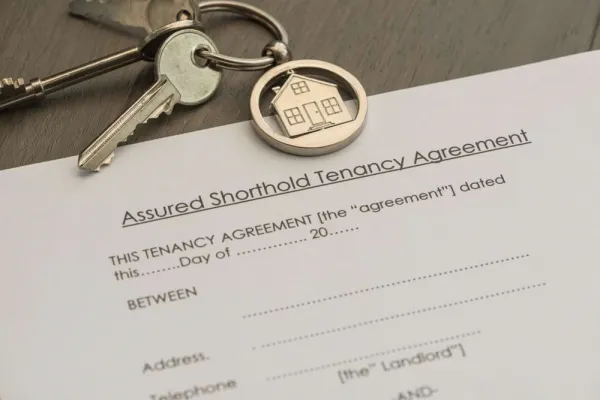Sell a Tenanted Property
With Sold.co.uk
- Free Cash Offer
- No Hidden Fees
- Sell In Your Own Timeframe
The time has come to sell your buy-to-let property
After making the bold step into property investment, it can be difficult to say goodbye to a part of your portfolio. Buy-to-Let houses can be an excellent money-maker – but selling them can also act as a launchpad for the next chapter of your property journey.
It doesn’t matter where you live, what type of house you have or why you’re selling: Sold.co.uk is here to help.
Get a FREE cash offer for your property
What is buy-to-let?
Don’t worry if you haven’t heard of the term ‘Buy-to-Let’ – we’ve given you all the info you need below.
Buy-to-Let is a type of mortgage in the UK which means the person buying a house has done so with the sole intention of letting it out. Most property investors do this because they want to get another source of income.
Most Buy-to-Let mortgages in the UK are interest-only, which means that you don’t have to pay off the full sum of the mortgage – only the interest on the loan. However, at the end of the mortgage period, you must either sell the house, pay off the loan in full or remortgage.
In the UK, there is not currently a limit on the number of Buy-to-Let mortgages you can have. While you may have to use different mortgage lenders after reaching a certain total, you can nevertheless build a vast property portfolio, with lots of income streams, through this type of mortgage.
Furthermore, Buy-to-Let properties tend to give a good return on investment in major cities in the UK, because they are usually lots of people (particularly students and people in their 20s) looking to rent in these areas. Buy-to-Let also doesn’t back you into a corner – if you want to convert your mortgage into a residential mortgage, then you can do so.
Buy-to-let has some drawbacks which must be considered before you jump into it, too.
These mortgages tend to require a larger deposit, which is usually around 25% in the UK. You will also experience all the challenges of being a landlord when you go down the buy-to-let route – including repairing issues in the house, answering your tenant’s queries, and chasing up rent payments.
On top of this, you may not be able to use your buy-to-let property as a ‘fall back option’ – because most UK lenders do not allow you to live in your own rental property. So, even if times get tough, you are unable to live there yourself.
Your options for selling a tenanted property
Estate Agents
Advantages
When you choose your estate agent carefully, it can make your life much easier once the time arrives to sell a house.
A company with lots of experience selling in the local area will usually have a network of potential buyers in the area – meaning that they can arrange several viewings in a short time frame.
The best estate agents will also have great knowledge of the local property market. This means that they will know what different property types tend to sell for in different areas – and can use this knowledge to provide a ‘ballpark figure’ on what your house will sell for.
Cons
It is important that you carry out in-depth research before committing to a single estate agent. Not all of them are as reliable as you would hope for.
Some agencies are slow, uncommunicative, or inexperienced in a specific location, so you should search for companies with hundreds of independent positive reviews. It is also a good idea to ask friends and family for recommendations in the area.
Another drawback to estate agents, in comparison to an option like using a cash house buyer, is that they tend to take a percentage commission from your property sale. In many cases, this figure will be at least 1.4%, which can represent a large sum of money.
Auction
Pros
Selling your property at an auction represents a fast, reliable way to offload your property. Roughly 78% of auction properties achieve a sale, which is a higher percentage than most traditional estate agents. This means that when you truly need to get a house ‘out of your hair’, an auction is an effective way to do it.
You can also sell your house at auction regardless of its condition. Any problems with your property – such as holes in your roof, burst pipes, broken windows or other issues – will become the problem of the new homeowner when they buy it. This saves you the time and money involved with fixing these issues yourself.
Cons
While there is a high chance of your sale being completed at auction, it may not be at a price that you are happy with.
Most people sell their properties at auction because they know it is in terrible condition, and therefore unlikely to be accepted on the open market. However, while the auctioneer sets the starting price, you have no control over the actions of bidders on any given day – and this could result in you being disappointed with the final sale price.
Auction houses usually have high fees when the time comes to sell your house. Many organisations will charge you at least £400 to enter your property in an auction and will then also take over 2% of the final sale price. This makes it an expensive route in comparison to cash buyers or estate agents.
Cash House Buyers
Selling to a cash buyer is a unique option which gives you advantages that you cannot get anywhere else.
Firstly, this route is undoubtedly the fastest one available on the market. While the average time to sell a house in the UK with an estate agent is 175 days, cash house buyers can often get the deal completed within one week.
You will also avoid several significant costs when you use a cash house buyer. Sold.co.uk is proud to pay your legal fees for you when you sell to us, and we also don’t charge an estate agent’s commission. This means that more of the final sale price goes into your bank account.
When you sell to a cash buyer, you can also offload your property no matter what condition it is in. Cash buyers will purchase your house even if it is tenanted, derelict or in an undesirable neighbourhood. We also don’t mind if the EPC rating is extremely poor or if there are registered disputes with the neighbours.
Contact Sold.co.uk today for a free, no-obligation valuation of your tenanted property.
Sell your home on your terms
Sell your tenanted property in just 7 days
Should You Sell With or Without a Tenant?
Selling with a tenant in situ
It’s important that you honour the terms of your tenancy agreement when selling with a tenant in-situ. You do not have the right to evict them from the property unless your fixed term agreement has come to an end, or you have a viable reason to issue a section 8 notice.
You will typically receive lower offers when selling with a tenant in situ because it is considered a greater risk by both mortgage lenders and property investors. This is why some homeowners will wait for the fixed term of their tenancy agreement to reach an end before selling the house.
In most cases, you are required to give your tenant at least 60 days’ notice that you are selling the property. This will be outlined in your tenancy agreement. Some landlords may even offer their tenant a cash incentive to vacate the property, but they are not required to accept this.
Organising viewings with tenant in situ
You need to give your tenants at least 24 hours’ notice before a viewing takes place. Some tenancy agreements may even prohibit viewings from taking place without the tenant’s permission – so you should review the terms of your agreement and seek expert legal support if you are unsure.
In general, it is preferable for your tenant to be absent from the property when the viewing takes place. You can ask them to tidy up slightly, but cannot force them to do so, and doing so yourself could be classed as an invasion of their privacy. You are mostly reliant on their goodwill in situations like this.
It may be worth checking with your tenant whether there are any faults with the property well in advance of viewings taking place. That way, you can fix these in advance.
Get a free cash offer for your property today
How To Ask A Tenant To Leave
You are allowed to ask your tenant to leave, but they are not required to do so. If they refuse, there is usually very little you can do about it, unless you have a valid reason for a section 8 notice, or the fixed term agreement is coming to an end.
If you have a friendly relationship with your tenant, then this will become useful in situations like this. You are largely dependent on their goodwill – so if you have an excellent relationship, they are more likely to be amenable.
With that being said, you do not have the legal right to evict them without cause, and so your hands may be somewhat tied in this situation.
Under the Housing Act 1998, you can submit a section 8 notice to evict a ‘problem tenant’ if you have cause to do so. Common justifications for doing this would include late rent payments, anti-social behaviour (such as repeatedly damaging the house or annoying the neighbours) or using the property for criminal activities.
You should seek legal guidance before you decide whether to take this route. While it will make the sale of your property much easier when it is vacant, you cannot fabricate reasons to evict your tenant, and you must have evidence that what you are saying is true.
Unfortunately, if you are unable to evict your problematic tenant, it will be seen as a negative feature of your property to potential buyers.
Reach 98% of all active buyers...






Can You Sell To Another Landlord?
Yes, you can sell your tenanted property to another landlord. When you do this, it means that the tenancy agreement will carry on unchanged, and the new owner will inherit the previous terms.
It is understandable, therefore, that any potential buyers will want to closely understand the terms of the tenancy before making a purchase. After all, this will dictate when/if their tenant could possibly be evicted, as well as what the current monthly rent payments are. When you are selling a tenanted property, it is highly likely that other landlords will show the most interest.
These people are property investors themselves, so they will see this as an opportunity to get a ‘good deal’ and purchase your house at a cheaper price than if tenants weren’t living there. It can also give them another stream of income via monthly rent payments.
There are some property investors who specialise in buying tenanted properties, with the intention of selling them for a profit in the future. They may also be more comfortable and experienced at dealing with problem tenants, so the situation might not phase them.
Sell your tenanted property fast

The Benefits of Selling Your Tenanted Property to Sold.co.uk
It’s easy for the hassle of selling a tenanted property to get you down – but it doesn’t have to be a burden.
A cash buyer with the funds to pay the entire fee up-front can take your tenanted property off your hands within a matter of days. This means that you can move onto the next stage of your life and not worry about negotiating with tenants, buyers and estate agents.
Sold.co.uk makes your life much easier.
When you use our cash buying facility, you will also avoid significant costs like conveyancing fees or estate agent’s commissions. We do not take a commission, and there are no hidden fees – so all you need to do is agree a price with us, and then watch the entire funds appear in your account within a few days.
Contact Sold.co.uk today for a free, no-obligation valuation of your tenanted property.
Why Sell Your Buy-to-Let Property to Sold?
When the time arrives to sell your tenanted property, you need an estate agency that you can trust.
In every town across the UK, there are traditional high street estate agents who sell tenanted properties. However, as an online estate agency, Sold.co.uk can give you advantages which you cannot get anywhere else.
Firstly, Sold.co.uk does not take any payment from you up-front. This means that if the house sale drags on a bit – as it often can when selling with tenants in-situ, as they may become uncooperative – it doesn’t cost you any extra.
We never have hidden fees, so it doesn’t matter whether it takes you two weeks, two months to two years to sell your tenanted property: it will cost exactly the same.
When you sell with Sold.co.uk, you also won’t be charged an estate agent’s commission on the sale. If you sell your property at the UK average of £285,044, this couls cost you at least £4,000 with any ‘regular’ estate agent – whereas with Sold.co.uk, it will cost you nothing.

Sell your tenanted property today
Frequently Asked Questions About Selling A Tenanted Property
What happens if you sell a property with a tenant in situ?
When you sell a property with a tenant in situ, it means that you will have to respect their rights throughout every stage of the process. Your tenancy agreement will outline what you can and can’t do, and a legal expert can provide guidance in this regard.
Keep in mind that tenanted properties tend to sell for less than a house without tenants in, so you may not receive the full market price for your house.
Is it better to sell a house with or without tenants?
Most people consider it preferable to sell a house without tenants. This is because you don’t have to organise viewings in conjunction with them, or work within the confines of the tenancy agreement.
The new owner will probably prefer to buy an untenanted house, too, because it means that they can make alterations to the property before letting it out. It also means that they can choose the tenants themselves, including the monthly rent that must be paid.
Why are houses sold with tenants?
In many cases, the tenancy agreement prohibits the current property owner from evicting the tenants without good reason. This means that the tenant has the right to continue living in the property even if it’s sold. The new owner must then wait for the agreement to end before they can issue a section 21 notice (if that’s an option).
Is it easier to sell a house with tenants?
No, it is more difficult to sell a house with tenants. Mortgage lenders usually view tenanted properties as a bigger risk, and property developers prefer a ‘clean slate’ when buying a house for the first time. This is why tenanted houses usually sell for less than they would without people still living there.
How much does it cost to sell a tenanted property?
Selling a tenanted property is not necessarily more expensive than selling an untenanted property. While you may have less people willing to buy your house, the amount of conveyancing involved – as well as any commission taken by a potential estate agent – should not change.
If you sell to a cash house buyer like Sold.co.uk, then it may even be less expensive, because we take care of your legal fees for you.
Can I sell my tenanted property?
Yes, you can sell a tenanted property. Some property investors will be willing to buy it from you – although it will often be at a lower price than you would’ve received if there weren’t still tenants living there. Cash house buyers will also be happy to take the house from you, but once again, this will be below the market rate.
Can you sell a property with a sitting tenant in the UK?
Yes, you can sell a house in the UK with a tenant still living there. You must check the terms of your tenancy agreement to ensure that you respect all the tenant’s rights throughout the selling process – for example, giving them 24 hours’ notice before any viewings take place.
Can you evict a tenant because you want to sell the property?
The terms of your tenancy agreement will dictate whether you are allowed to do this – but the homeowner must always follow the correct procedure.
If you issue your tenant with a section 21 notice, it will result in a no-fault eviction, but you may not be able to do this until your current fixed term agreement ends.
How much notice do I have to give a tenant if I want to sell my house?
The rental agreement will outline how much notice you must give your tenant before selling the property, or before the current tenancy agreement comes to an end. In many cases, this period is 60 days, but it can be more or less depending on the terms of your agreement.
What is a section 21 possession order?
A section 21 possession order is a process that allows a landlord to reclaim the property. It is otherwise known as a ‘no fault’ eviction because a reason is not required for the tenant to be evicted. However, unless the current tenancy agreement is near its end, you cannot issue these notices if the tenant is contracted to live there.
When you give a section 21 notice to your tenant, it usually gives them at least two months to vacate the property.
What is a section 8 notice?
A section 8 notice, under the Housing Act 1988, is when a landlord evicts a tenant because they have broken the terms of their agreement. Common examples include not paying their rent on-time, anti-social behavior, or using the property for criminal activities.
Unlike a Section 21 eviction, which can only happen at the end of a tenancy, a Section 8 eviction can take place midway through an Assured Shorthold Tenancy (before the contract comes to an end).
Read more about Selling A Tenanted Property with Sold.co.uk
Buying a second home is a great position to be in. Some buyers choose holiday homes. However, this term is often mixed up with holiday…
There are several different types of tenancy agreement in the UK. One of the most popular is an assured shorthold tenancy. Whether you’re renting out…
When student tenants leave before the end of their contract, landlords lose money. You can find a replacement quickly in several different ways. It doesn’t…
Get a cash offer for your tenanted property today
Please enter your details below and a member of our team will be in touch to discuss a free valuation for your home.
"*" indicates required fields
By submitting your details, you agree that we may keep this information safely. Our Privacy Policy has further details















